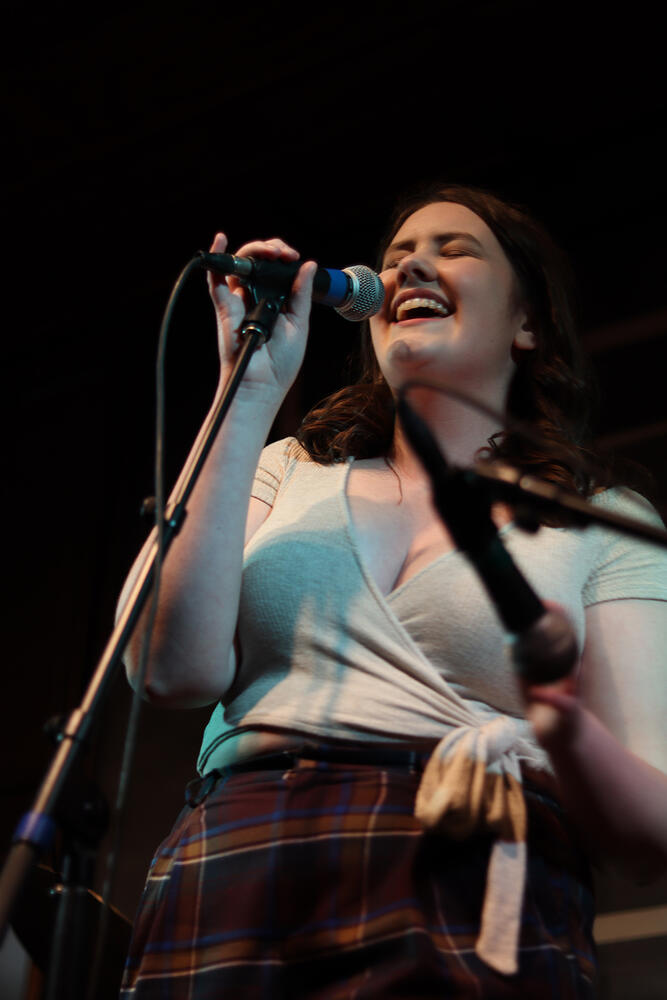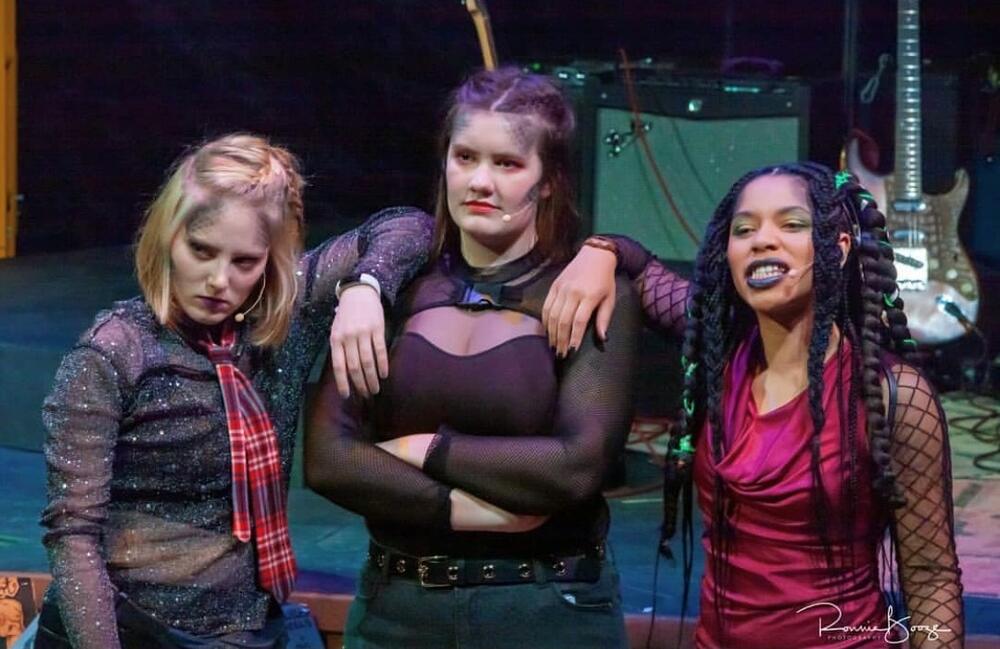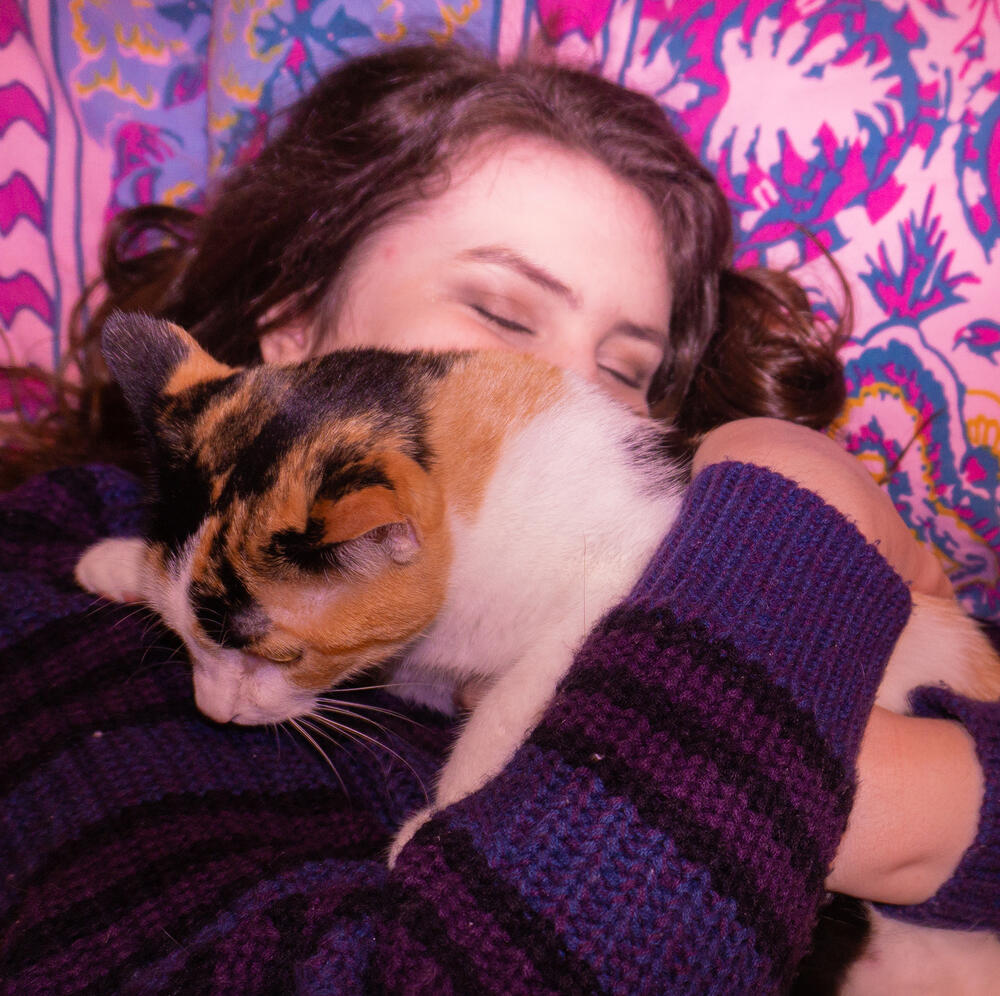AMC: Who have been some of your most valuable mentors or artistic influences?
RH: Definitely Dr. Bass. None of this would have happened without him. He’s been a huge part of the whole process by providing his creative input. In the Mike Curb Institute for Music, which I was part of since my sophomore year, he did so much great work connecting the students at Rhodes with the Memphis community at large, giving them access to studio space on campus, and really just allowing students to learn to do whatever they want to in music. My college experience would not have been what it was without Dr. Bass and the Curb Institute. That was a huge part of me being able to create this album.
AMC: What advice do you have for current music students at Rhodes who hope to produce their own work? Have there been any valuable lessons you have learned so far as a blossoming artist?
RH: Get involved with the Curb Institute! I love the Rhodes Music Department as well, but I think especially if you want to do commercial music, the piece of my music degree provided by the Curb Institute was essential. At Rhodes I was able to explore all sorts of different genres thanks to the Curb Institute.
For me, a big part of my music journey was learning to be less shy. I think college in general really allows you to come into your own as a person, so if I could give advice to myself going into freshman year I would say, don’t be scared. It's college! No one really cares what you’re doing to begin with, they just want to be your friend and hangout, or they aren’t thinking about you at all [laughs], so you can go in and do whatever you want to do. And if you have a passion or interest, there’s a way for you to get involved in it at Rhodes. Take the time out of your schedule to learn, take music tech classes and audio engineering, and look into different projects. Take advantage of programs like the Rhodes Institute for Regional Studies! I had no idea that you can get paid to do a research project until my Senior year. Just take advantage of resources, and don’t be scared to try new things and see wherever it goes. If you make the most of your opportunities, you will learn so much.
AMC: Finally, as you continue your promotion for The Liminal Space, what is next for you as an artist? Do you have any short-term or long-term plans in the works?
RH: I recently started a position working in artist royalties with a company called Sound Credit. I’m excited to learn about how artists get paid and about working in the music scene. Personally, for my artistry career, I’m hoping to do a pop EP for my next release. With The Liminal Space, I had this collection of songs that I really liked but were all kind of diverse and different from each other. It felt like I was genre hopping a lot, which is a great way to express the range of what I can do and showcase an artist portfolio. For my next release I think I want to do something that’s a little bit more cohesive. For me, I feel like the greatest albums are either one or the other—its either entirely its own genre of music or a whole smorgasbord of different sounds. This was kind of my smorgasbord piece, and my next one I want to be a very cohesive, five track pop EP with some dance and upbeat music. Short term, I have a music video coming out hopefully within the next month. It was produced and directed by another alum and friend of mine, Gunner Smith ’21, who approached me with the idea and storyboarded the whole thing. He had already done a lot of photography for my album cover, so we had been working together. We shot the whole thing in my apartment in one long weekend, and he’s in the process of editing it. It was kind of his passion project, he wanted to add a music video to his portfolio and obviously if someone approaches me and says, “let me help you do a music video basically for free,” I’m going to say yes [laughs], so that should be coming out soon! I’ll post links to it on all my socials, and it’ll go up on my YouTube channel.


